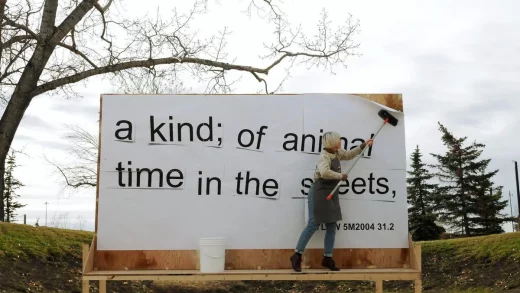:format(webp)/https://www.thestar.com/content/dam/thestar/entertainment/books/2022/11/01/celeste-ng-on-her-new-book-our-missing-hearts-its-terrifying-to-think-of-going-to-a-library-and-finding-that-most-of-the-books-have-been-taken-away/celeste_ng_credit_kieran_kesner.jpg)
Adolescence can be excruciating, even to think back upon. Hormones churn, bodies are uncontrollable, minds spiral with unsettling thoughts. But there is also quiet beauty beyond the pimples and eye rolls during this time of inquisitiveness and emotional growth, even if we don’t remember the good parts.
Over three novels, starting with 2014’s debut “Everything I Never Told You” and the blockbuster “Little Fires Everywhere,” Celeste Ng has shown a remarkable capacity for tapping into that soon-to-be teen spirit with realness and empathy. Her latest bestseller, “Our Missing Hearts,” continues to explore family dynamics through the observant lens of youth — in this case, set in a frightening world that looks uncomfortably similar to our own.
Ng, in Toronto for a promotional tour — her latest title has been named Book of the Year by Indigo Books & Music — says she’s always been drawn to writing adolescent characters even before she became the mom to her own tween.
“It’s such an interesting age. They’re not children anymore, but they’re figuring out what their context is,” she says. “It’s that time where you start learning about what happened in the world before you and you get a sense of the bigger picture. Like this has been the frame of your life so far and suddenly you realize there’s stuff outside the frame. It’s also the time where you start realizing that your parents had a life before you and that they’re actual people.”
In “Our Missing Hearts,” Noah Gardner, a 12-year-old Chinese American boy nicknamed Bird, is living with his father in subsidized housing at Harvard University (where Ng graduated with her English degree in 2002). At an age where he should be riding his bike and upping his video game scores, Bird is growing up in a country ruled by PACT (the Preserving American Culture and Traditions Act), a set of laws established after “the Crisis,” which mostly targets those of Asian descent. While no date is given, this world feels like an alternative version of today.
Although his father Ethan — a former linguist who was demoted to stacking library shelves — monitors Bird’s every move for his safety, Bird is more than aware of the consequences of defying PACT. His mother, Margaret, disappeared and is on the run, considered a traitor even by his classmates for writing a poem that became a rallying cry against PACT’s inhumanity. Children including his best friend Sadie disappear in retribution (or are “re-placed”) for their parents’ dissidence. When a mysterious letter from Margaret appears, Bird knows to act stealthily to uncover the truth about his mother’s sudden departure by decoding the stories they once shared.
Categorized by many as a dystopian literary thriller to be shelved alongside Margaret Atwood’s “The Handmaid’s Tale,” Ng’s “Our Missing Hearts” has more in common at its core with the suburban-set “Little Fires Everywhere,” which was turned into an HBO series after landing a coveted spot in Reese Witherspoon’s book club. (Witherspoon co-starred and executive produced the series, with Ng acting as a producer.)
“Little Fires Everywhere” follows an artist whose young daughter ultimately supports her unconventional lifestyle. But in 2016, as Ng was toying with the opposing idea of a mother-son dynamic in which the younger felt he was competing with his parent’s creative priorities, the results of the U.S. presidential election came in as Donald Trump beat Hillary Clinton, the grenade pin in a public rise of white nationalist violence.
“Of course, we had been seeing a lot of troubling movement toward the far right. But I think in the months and then the years after that, it was so present in my own life that it was strange not to have that in the book,” says Ng. “The political climate was really making me ask a lot of questions. What can we do? Yes, we got out, we voted, we protested, but things kept happening. Should we just give up?”
Thinking about her son’s future, Ng felt even greater pressure: “How do I raise him to be the kind of person I hope he will be in this atmosphere that feels really scary and repressive?”
And then came COVID-19, the subsequent lockdowns and another rise of anti-Asian violence. The pervading sense of isolation and fear clarified Ng’s approach to her novel — but not without much soul searching.
Ng’s parents are both scientists who emigrated from Hong Kong in the 1960s. During the pandemic, she started to doubt her societal value as an author, despite selling millions of books that deal with prescient themes such as racism and privilege. “As a writer, I was having a little bit of an existential crisis, asking myself, ‘What am I doing?’ I should have been a lawyer or helping to organize,” Ng recalls. “Or if I were a doctor, I could be in the hospital trying to very tangibly save people’s lives.”
A lifelong reader, Ng rediscovered hope in storytelling, returning to the Chinese folk tales from her youth. One story in particular, which Ng distinctly remembers from her own childhood despite the fact that no one else in her family can remember its details, guided Bird’s narrative. Ng doesn’t want to give too much away, but it’s about a boy finding his way through art.
“It clicked in my brain,” she says. “It feels like when magnets turn towards each other, and I can tell something has connected.”
Libraries play a critical role in “Our Missing Hearts,” and serve another disturbing connection to our current world. According to PEN America, from July 2021 to June 2022, the American organization counted 2,532 instances of individual books being banned, with 1,648 unique titles under scrutiny, mostly LGBTQ content. In Ng’s novel, banned books are removed from shelves and symbolically pulped to make toilet paper.
“It’s terrifying to think of going to a library and finding that most of the books have been taken away,” says Ng, who grew up thinking of libraries as a welcoming repository of knowledge where she learned everything from knitting to ancient Greek history. “It’s certainly happened before and it’s been an ongoing struggle. But it was one of the places where I had finished writing the book and I had turned in my edits, and then it came into the news cycle. It’s another place where history is repeating.”
Despite all these intersections, Ng wants readers to know that ultimately, “Our Missing Hearts” is about hope. She says, “It came out of me trying to figure out how to wake up every morning and tell my kid, ‘OK, yes, the news is bad. But we’re trying to make it better.’”
JOIN THE CONVERSATION


